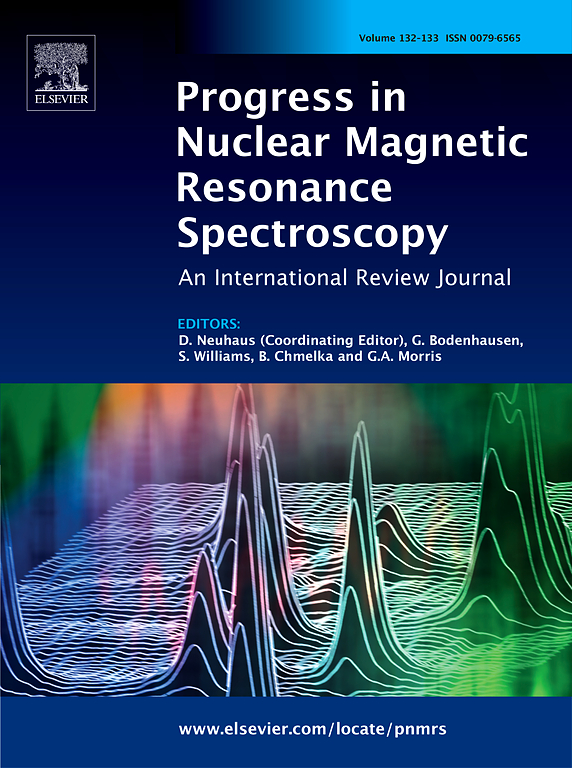深度学习及其在核磁共振波谱学中的应用
IF 8.2
2区 化学
Q2 CHEMISTRY, PHYSICAL
Progress in Nuclear Magnetic Resonance Spectroscopy
Pub Date : 2025-01-17
DOI:10.1016/j.pnmrs.2024.101556
引用次数: 0
摘要
核磁共振作为一项先进的技术,在化学、生物、医学等各个领域有着广泛的应用。然而,多维光谱采集时间长、灵敏度低等问题限制了核磁共振的广泛应用。传统算法旨在解决这些问题,但在速度和准确性方面存在局限性。深度学习(DL)是人工智能(AI)技术的一个分支,在包括核磁共振在内的许多领域都取得了显著的成功。本文概述了深度学习的基础知识和目前深度学习在核磁共振中的应用,强调了存在的挑战,并提出了潜在的改进方向。本文章由计算机程序翻译,如有差异,请以英文原文为准。

Deep learning and its applications in nuclear magnetic resonance spectroscopy
Nuclear Magnetic Resonance (NMR), as an advanced technology, has widespread applications in various fields like chemistry, biology, and medicine. However, issues such as long acquisition times for multidimensional spectra and low sensitivity limit the broader application of NMR. Traditional algorithms aim to address these issues but have limitations in speed and accuracy. Deep Learning (DL), a branch of Artificial Intelligence (AI) technology, has shown remarkable success in many fields including NMR. This paper presents an overview of the basics of DL and current applications of DL in NMR, highlights existing challenges, and suggests potential directions for improvement.
求助全文
通过发布文献求助,成功后即可免费获取论文全文。
去求助
来源期刊
CiteScore
14.30
自引率
8.20%
发文量
12
审稿时长
62 days
期刊介绍:
Progress in Nuclear Magnetic Resonance Spectroscopy publishes review papers describing research related to the theory and application of NMR spectroscopy. This technique is widely applied in chemistry, physics, biochemistry and materials science, and also in many areas of biology and medicine. The journal publishes review articles covering applications in all of these and in related subjects, as well as in-depth treatments of the fundamental theory of and instrumental developments in NMR spectroscopy.

 求助内容:
求助内容: 应助结果提醒方式:
应助结果提醒方式:


